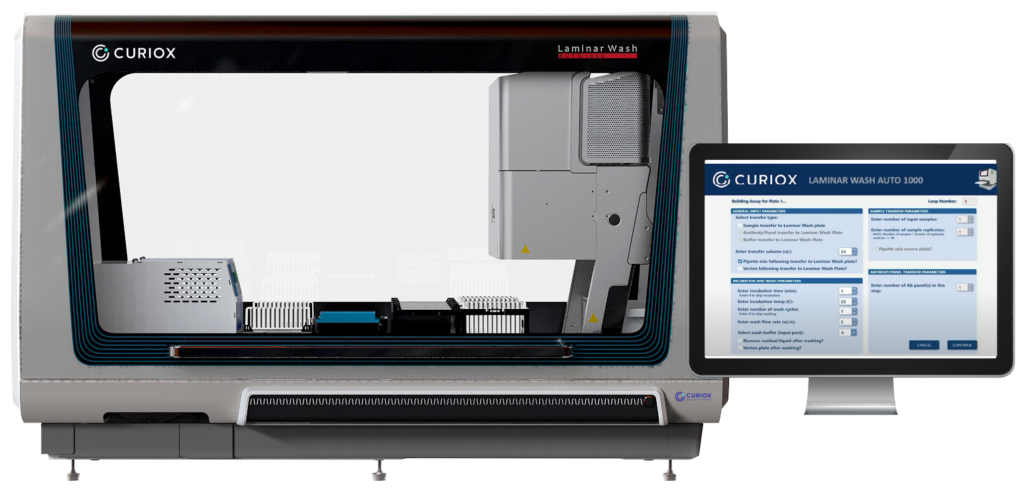CURIOX APPLICATIONS
SINGLE-CELL SEQUENCING
Treat your cells gently in preparation for critical single-cell genomic and proteogenomic applications.
- Home
- Applications _ Single cell sequencing
Overview
CHANGE THE WAY YOU PROCESS CELLS TO GET RELIABLY CONSISTENT DATA
Single-cell genomics and proteogenomics are rapidly growing. Nature Methods named multimodal omics the Method of the Year for 2019. As more scientists use single-cell techniques, they find that sample prep is paramount to producing high-quality data.
Cell clumping, poor retention of cells with already low cell counts, and unwashed residual nucleic acids are just a few symptoms of poor cell washing that impacts single-cell sequencing and proteogenomics. Centrifugation also induces cellular stress on samples, resulting in erroneous gene expression results.
Sample prep is extremely important in single-cell genomics and proteogenomics, especially for single-cell gene expression and immune profiling. While mRNA transcripts are being barcoded, cellular mRNA leakage (increased background) or mRNA degradation (decreased signal) significantly impacts these sensitive measurements. Unlike with flow cytometry, gating out debris or groups of cells is not possible in single-cell sequencing. The cell preparation must be as clean as possible and yield single cells.
10X Genomics’ Sample Preparation Demonstrated Protocol Fresh Frozen Human Peripheral Blood Mononuclear Cells for Single Cell RNA Sequencing (Part Number CG00039 Rev C) uses centrifugation to wash cells and warns, “However, be careful not to over-centrifuge as increased centrifugation speed can compromise the cell integrity and viability.” A study published in Nature Methods shows that single cell isolation procedures induce transcriptome-wide changes in cells. So, it makes sense that if there is a gentler method to wash cells scientists should use it.
Using the Laminar Wash system saves time with fewer manual manipulations. Gently washing cells without unnatural centrifugal forces maintains cell integrity and viability, while ensuring gene or protein expression changes are biological, instead of due to workflow.
Laminar Wash technology has been added as part of the official TotalSeq™ Protocol. It simplifies the processing of samples with low cell counts, enabling high-throughput.
“Curiox (Laminar Wash) really helps retain high numbers of cells”
Dr. Antonino Montalbano, ImmunAI
Traditional centrifugation
VS
Laminar flow technology
Comparison of an immuno-staining workflow for the preparation of a single cell suspension for flow cytometry analysis. Laminar Wash technology is equally effective in washing but without the use of a centrifuge.
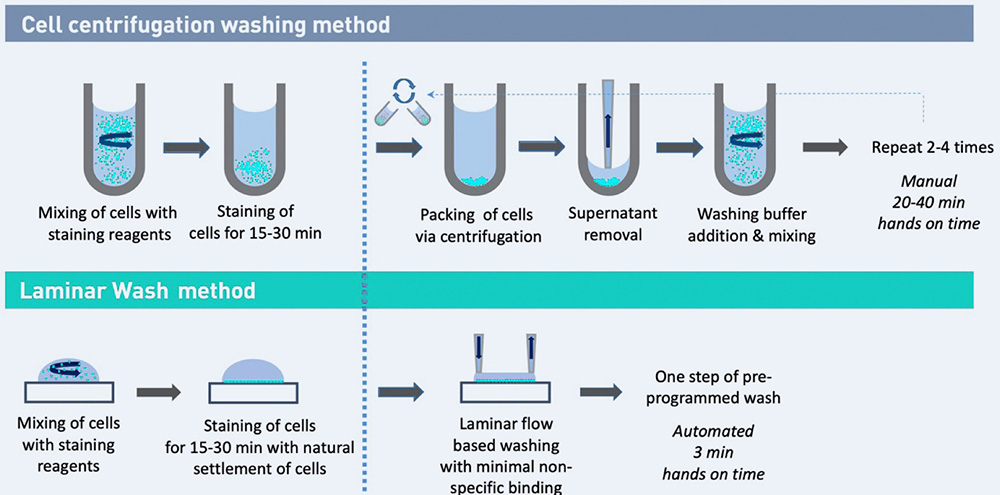
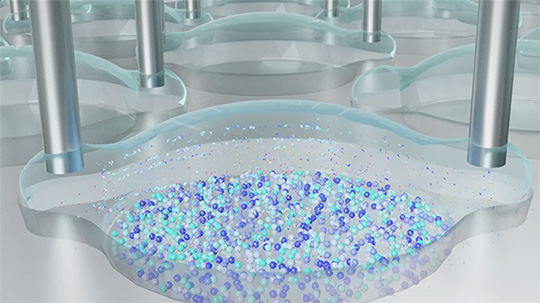
Benefits
Laminar wash for single cell sequencing & proteogenomics
Affordable and simple automation of sample prep by Laminar Wash technology offers many benefits including:
- Enhanced cell retention, especially with low numbers of cells
- Improved viability and reduced stress on cells
- Reduced debris and cell clumping (more singlets!)
- Improved resolution of cell populations
- Less hands-on time and more high-throughput
Featured Resource
Single-Cell Transcriptomic Analyses Define Distinct Peripheral B Cell Subsets and Discrete Development Pathways. Stewart, et al. (2021) Front. Immunol.
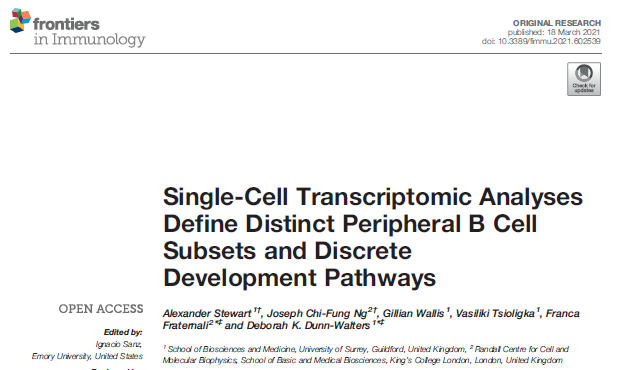
Scientific Data
Data using the laminar wash system
Improved retention, better multiplexing from single cell proteogenomic experiments.
Figure 1: Laminar Wash generates better cell hashing results
Samples processed with a Curiox Laminar Wash system yield fewer doublets, fewer negative results and higher numbers of singlets. Data courtesy of ImmunAI, adapted from Dr. Antonio Montalbano’s webinar with Curiox Biosystems.
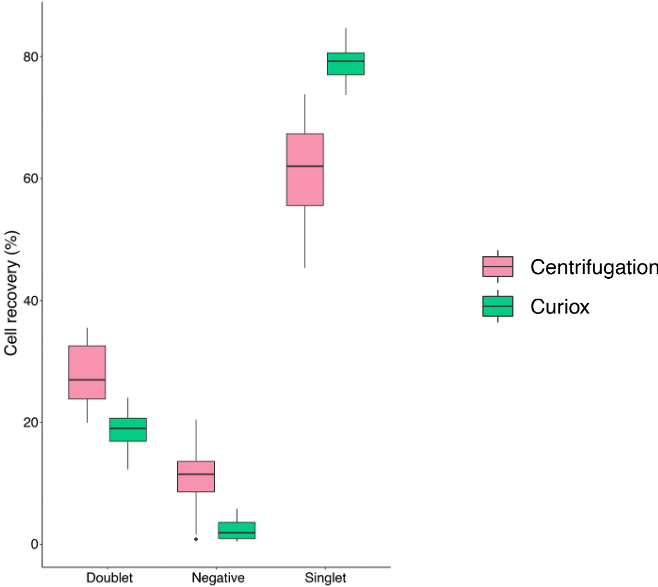

Improved Operator Consistency by Automating Only the Wash Step
Figure 2: Laminar Wash Retains Higher Numbers of Cells.
Laminar Wash consistently retained higher numbers of cells, compared to traditional centrifuge-based methods. This is especially true for samples that have a very low number of cells. Data courtesy of ImmunAI, adapted from Dr. Antonio Montalbano’s webinar with Curiox Biosystems.
RELATED PRODUCTS AND ACCESSORIES
Curiox Laminar Wash
LAMINAR WASH™ HT2000 SYSTEM
Achieve higher throughputs and cleaner data with our 96-well laminar washing system.
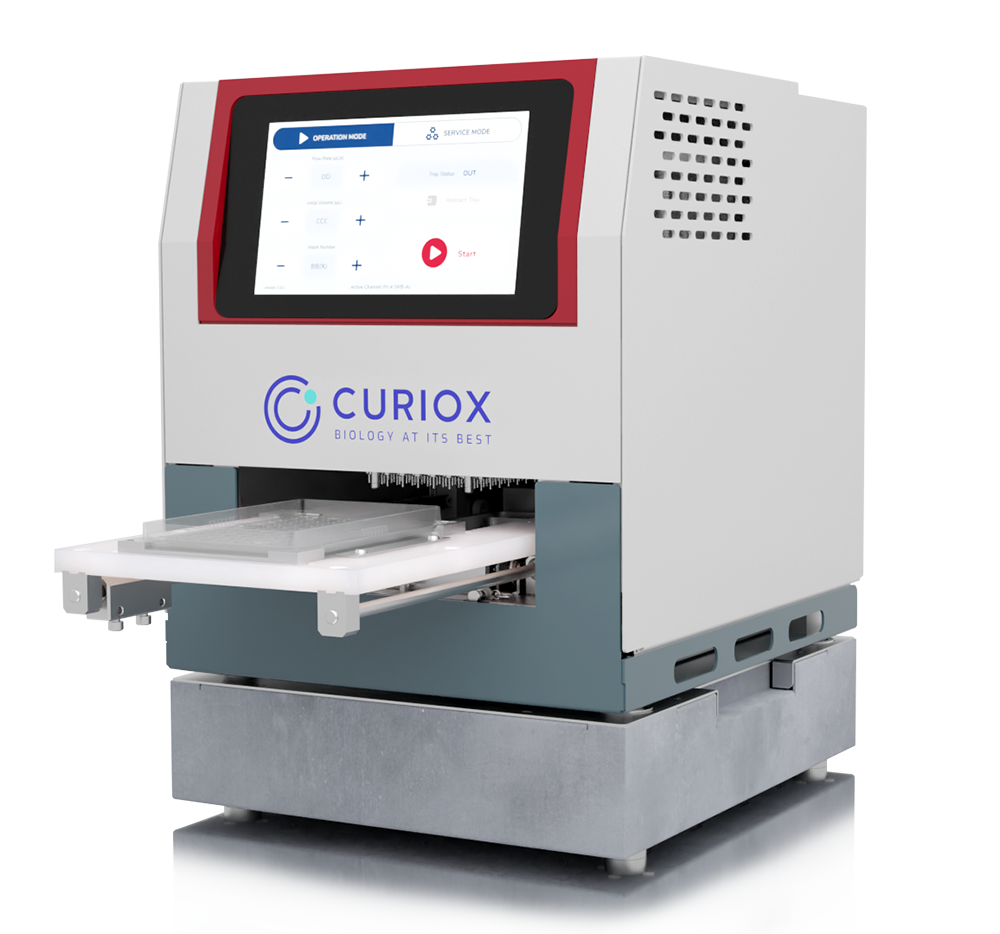
Curiox Laminar Wash Auto
LAMINAR WASH™ AUTO 1000 SYSTEM
Accelerate high-throughput flow and mass cytometry workflows with fully automated sample preparation.
